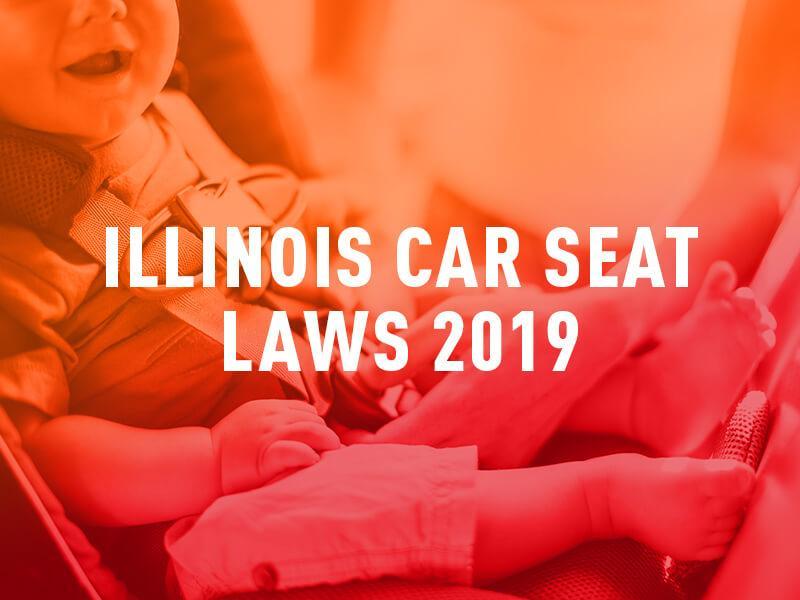Illinois New Car Seat Laws 2019

Parents of young children often struggle to understand which child safety seat is correct and how the state laws apply to them. The Illinois Child Passenger Protection Act outlines the guidelines that parents must follow when they have younger children in a vehicle.
This act says that children under the age of 8 years old must be properly secured in an appropriate child safety restraint system. This includes the use of booster seats that must be used with a lap/should safety belt.
As of January 1, 2019, the Child Passenger Protection Act has been amended to include the requirement for children under two years of age to be properly secured in a rear-facing child restraint system (unless the child weighs more than 40 pounds or is over 40 inches tall).
Can a child ride in a two-seater car?
A child can ride in a two-seater car as long as they are properly restrained according to the Child Passenger Protection Act and the front airbag for the passenger side is turned off. Airbags in a vehicle are designed to protect adults and can cause significant damage and even death in children, even in instances of minor accidents that trigger the airbags to be deployed.
Can an 8 year old sit in the front seat in Illinois?
No, a child who is aged 8 to 12 must continue to ride in the back seat of a car. It is recommended that a child stay in a belt-positioning booster seat until they are tall enough to properly fit in an adult lap/shoulder belt system.
What are the dangers children face in a vehicle?
Car crashes happen regularly across the state. For the latest reporting year in Illinois, there were 311,679 total vehicle crashes. Out of those, there were:
- 66,889 injury crashes
- 998 fatal crashes
Looking closely at the data provided by the state, we can see the following:
- 1,673 children aged 4 or younger were injured in crashes. 137 of these injuries were catastrophic. 12 children under 4 were killed in crashes.
- 1,888 children 5 to 9 were injured in crashes. 143 of these injuries were catastrophic. 11 children aged 5 to 9 were killed in crashes.
Children are susceptible to major injuries in a car crash. It is not uncommon for us to see the following in the aftermath of a car crash:
- Broken and dislocated bones
- Severe lacerations
- Internal organ damage
- Internal bleeding
- Spinal cord injuries
- Whiplash injuries
- Traumatic brain injuries
- Concussions
The American Academy of Pediatrics, the National Highway Traffic Safety Administration, and the Centers for Disease Control all recommend that children continue to ride in the back seat of a vehicle until they reach age 13.
Doctors say several factors contribute to this recommendation, including the fact that children have not yet fully developed their bones at younger ages, which increases the risk of vital organ damage in a car accident.
Parents who violate the Child Passenger Protection Act face a fine of $75. This fine can be avoided by proving you have possession of an appropriate child restraint system and by taking an instructional course on the proper installation of the child restraint system. Parents are also required to provide an appropriate child restraint system to anyone responsible for transporting their child.









